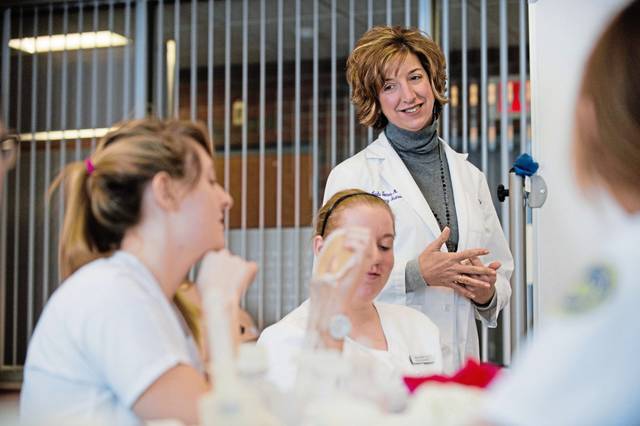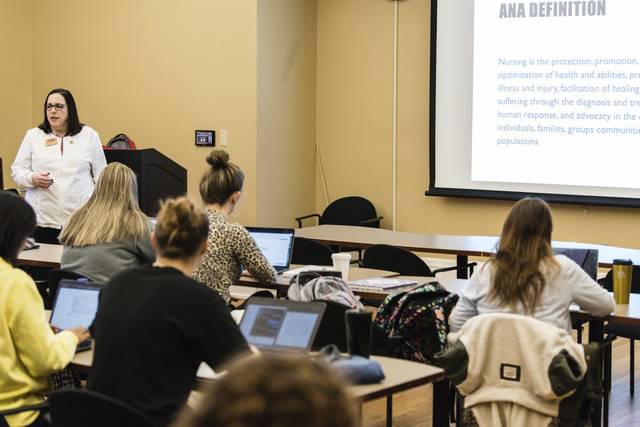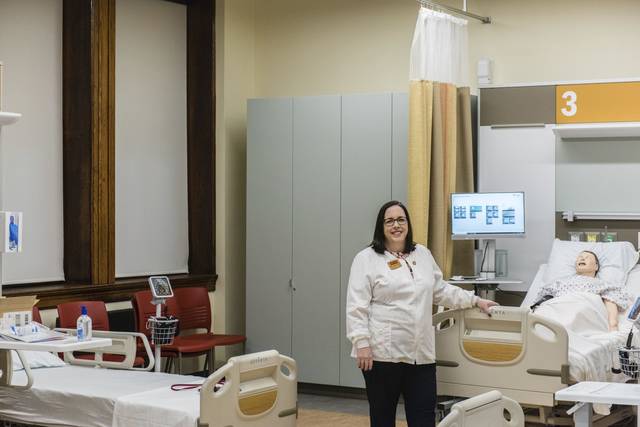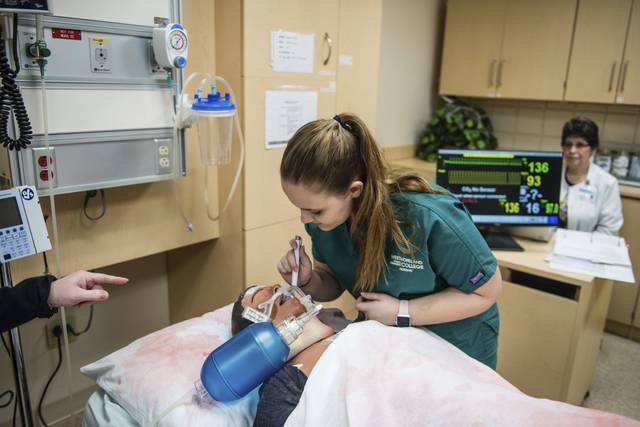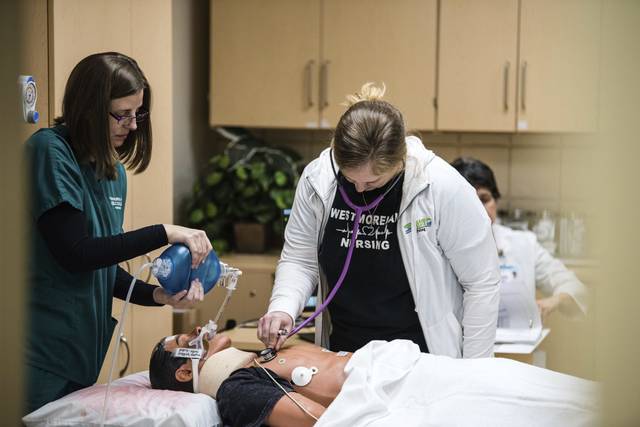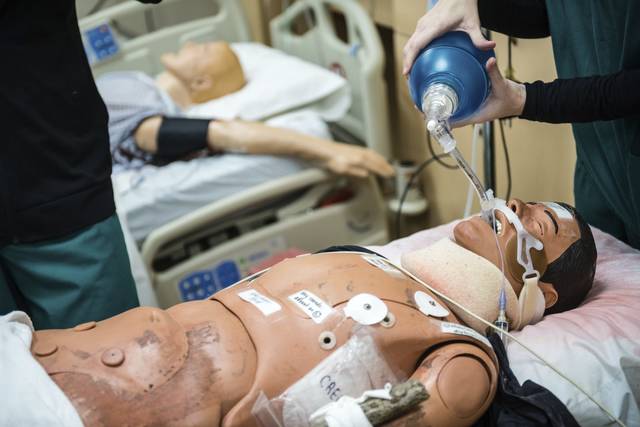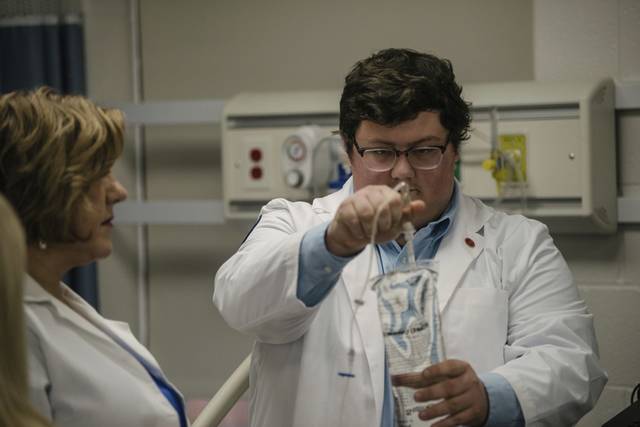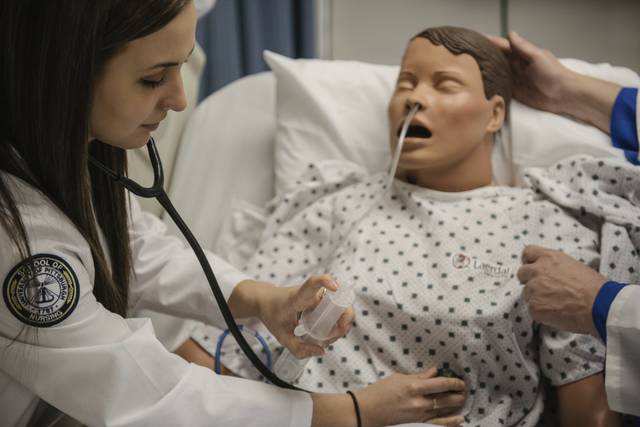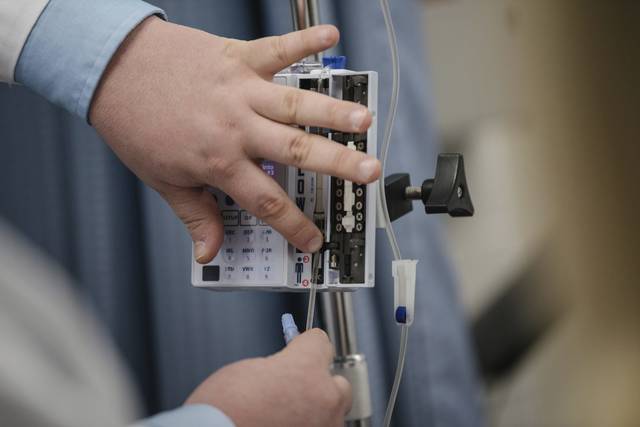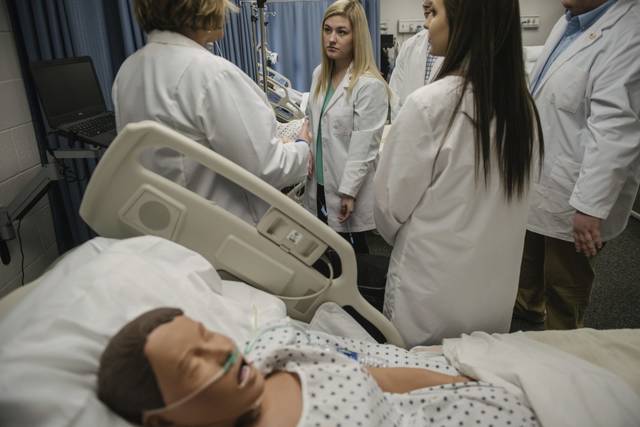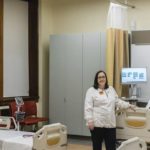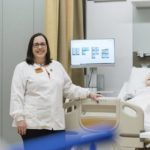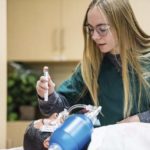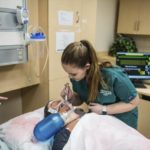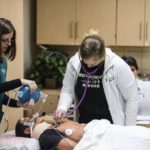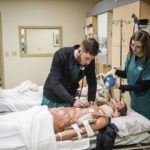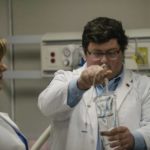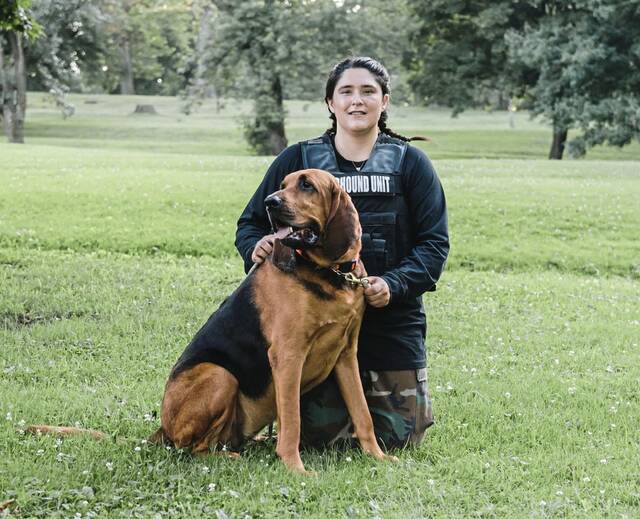By some estimates, the United States is losing 70,000 registered nurses a year to retirement.
The current number of baby boomer RNs — 660,000 — is roughly half their peak in 2008, according to the Journal of Nursing Regulation.
That there is a nursing shortage — driven partly by demographics, partly by the changing health care landscape — is beyond dispute. Nursing school enrollment is not keeping up with demand, so some colleges and universities are addressing the shortage by starting their own nursing degree programs.
In Westmoreland County, three new programs have opened in the past three years — the University of Pittsburgh at Greensburg in 2017, and Seton Hill University and Saint Vincent College in 2019.
All three offer bachelor of science in nursing, or BSN, degrees, although Pitt-Greensburg builds on the experience of Pitt’s highly-touted School of Nursing and Saint Vincent is a collaboration with a longstanding nursing program at Carlow University in Pittsburgh.
And all three have met or exceeded enrollment expectations as they prepare a new generation of nurses to work not only in hospitals but also in home health care, nursing homes and increasingly specialized subfields.
“By increasing our enrollment here in Western Pennsylvania, we’ll be able to supply nurses locally, regionally and nationally,” said Diane Kondas, nursing program director at Seton Hill.
The Greensburg University launched its program last fall with a freshman class of 25 students. The school hopes to increase that number to 40 in each succeeding year, Kondas said.
Graduates will be qualified to practice as registered nurses once they pass the National Council Licensure Examination, or NCLEX.
Studies have shown nurses with a BSN degree have better health care outcomes than nurses who don’t, said Marie Fioravanti, director of nursing at Pitt-Greensburg.
Fioravanti cited a 2003 Institute of Medicine study that recommended 80% of hospital nurses be BSN trained by 2020.
“Prior to Pitt-Greensburg, there were no BSN programs in Westmoreland County,” she said.
Now that there are three, the competition will be good for the quality of nursing education in the area, she said.
“We’ve been in a nursing shortage for as long as I can remember,” Fioravanti said. “The baby boomers are in a situation where many of them are going to be retiring. … We will continue to need all the programs we have.”
The National Sample Survey of Registered Nurses, conducted in 2018, found the number of registered nurses who enter the profession via an associate degree grew from 45.4% to 48.5% in a decade.
What’s more, the number of nurses earning baccalaureate and higher degrees grew by a combined percentage of 50% in 2008 to 64% in 2018, the survey said.
‘Seamless transition’
Nursing students at Westmoreland County Community College who earn a two-year degree can make a “seamless transition” to four-year schools that WCCC has articulation agreements with, said Sue Snyder, nursing program director.
WCCC students can be simultaneously enrolled at Seton Hill or Carlow, which shortens the amount of time it takes to finish a bachelor’s degree, she said.
“We do encourage all our graduates to go on and get their bachelor’s degree,” Snyder said. “If we know what college the student wants to attend, we can help them take the right transferable courses.”
Snyder said there are 2,000 open nursing jobs in Westmoreland, Allegheny and Indiana counties, which is where most WCCC students come from. Since many of them are older, nontraditional students, they are more likely to stay put and take local jobs.
“It’s important for a community college to have the ability to provide those jobs to the community,” she said. “My students get 100% placement — everybody gets a job. There’s more jobs out there than students we’re able to produce.”
Employment of registered nurses is projected to grow 12% from 2020 to 2028 — much faster than the average for all occupations, according to the federal Bureau of Labor Statistics.
Growth will occur for a number of reasons, including an increased emphasis on preventive care; growing rates of chronic conditions, such as diabetes and obesity; and demand for health care services from baby boomers, as they live longer and more active lives, according to BLS.
WCCC’s nursing program graduated its first students in 1973, making it one of the oldest two-year nursing programs in the area. It currently has 220 students, about 90 of whom are graduating in May, Snyder said.
Supply and demand
The nursing shortage in Westmoreland County has a supply component and a demand component, nursing directors say.
On the demand side, more nurses are needed as the population ages, as more health care becomes home-based and as health care becomes more specialized.
“As the baby boomers age out of (nursing) jobs, we’re also aging into disease and illness. We need care,” Snyder said.
Saint Vincent started its undergraduate nursing program last fall with 23 students. Saint Vincent plans to build on the Carlow program, which boasts the highest first-time pass rate on the NCLEX in the Pittsburgh area, said Carla Tomas, coordinator of the Saint Vincent- Carlow nursing program.
Students will spend all four years at Saint Vincent, while using Carlow’s nursing curriculum.
“All the nursing courses are Carlow courses taught here by a nursing faculty that is a combination (from both schools),” said Tomas, who previously was on the Carlow nursing faculty for eight years.
The program will tap the existing partnership between Saint Vincent and Excela Health and will showcase the college’s state-of-the-art facilities, including the recently-constructed Liberatore Human Anatomy Laboratory and a planned simulation lab.


